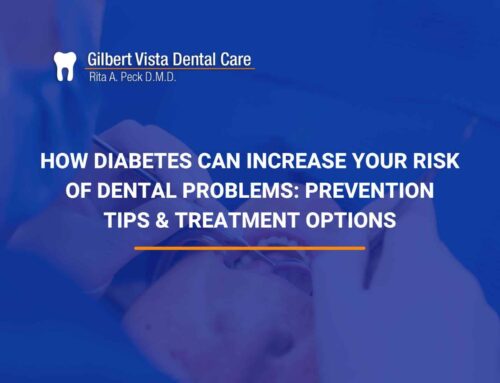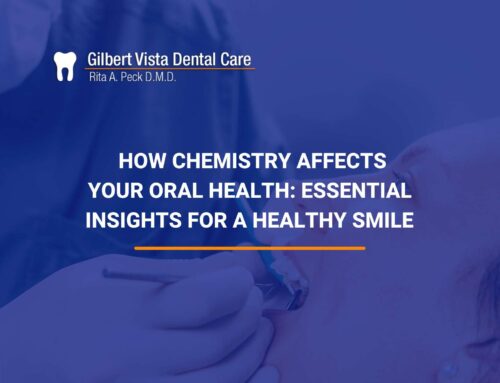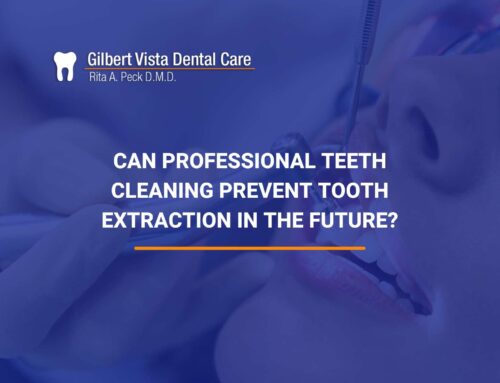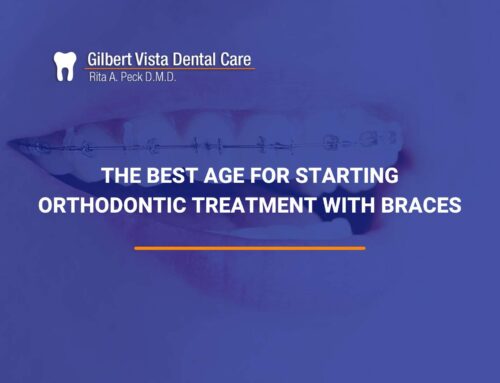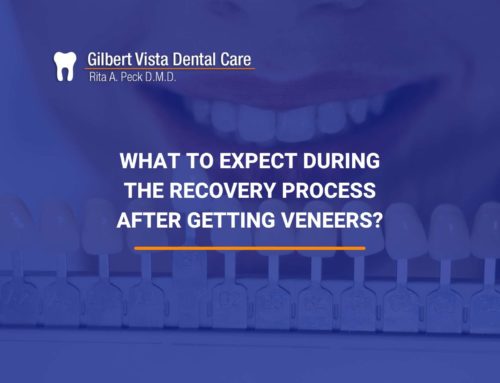Can Teeth Whitening Address All Types Of Tooth Discoloration?
Exploring The Effectiveness of Different Teeth Whitening Treatments
Are you frustrated with stubborn tooth discoloration and wondering if teeth whitening can help? You’re not alone. Many people desire a brighter smile but are unsure if whitening treatments can fix all types of stains.
In this blog post, we’ll explore the effectiveness of teeth whitening and whether it can meet your expectations. Continue reading to learn more before stepping into a Gilbert dentist’s office.
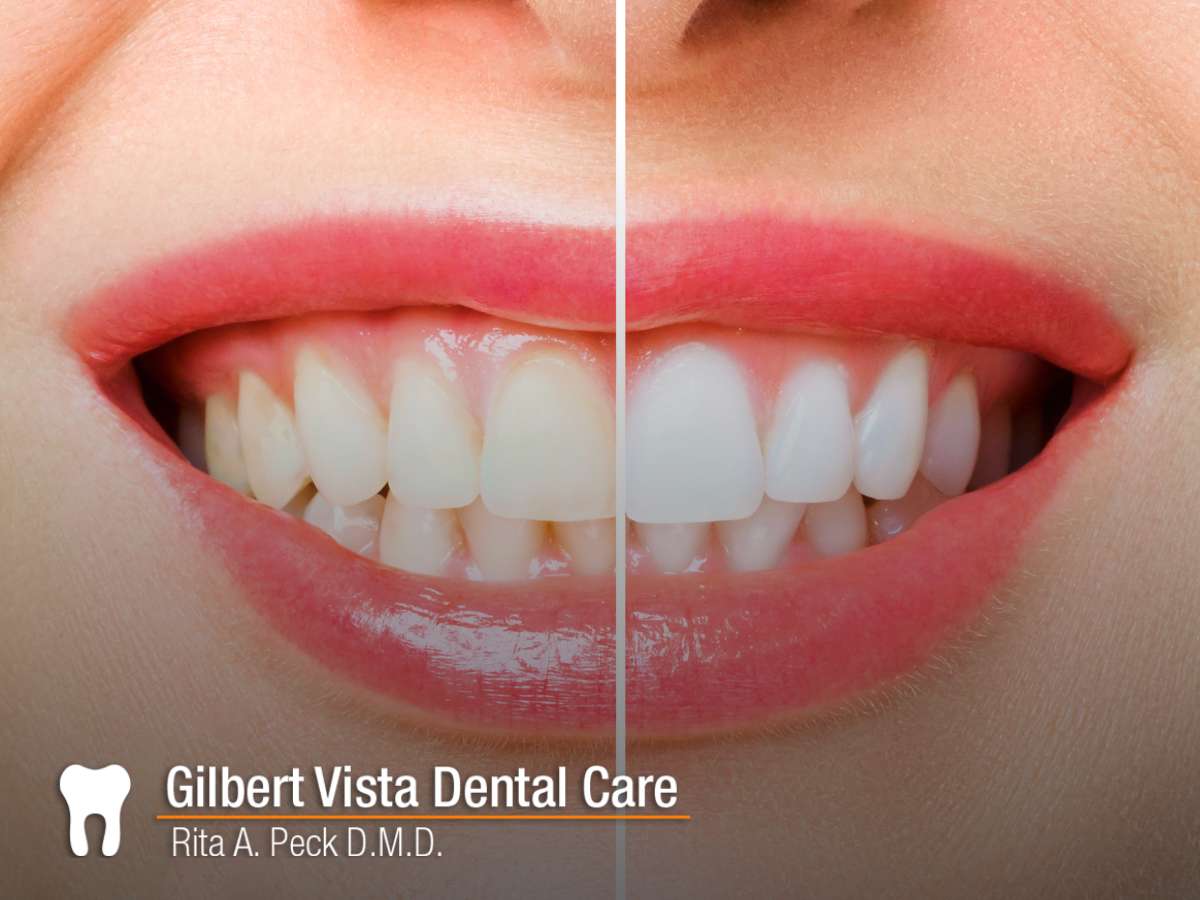
Understanding The Different Types of Tooth Discoloration
As the name implies, tooth discoloration happens when the color of your teeth changes. They usually appear less bright, yellowed, or even with dark or white spots.
There are three types of tooth discoloration: extrinsic, intrinsic, and age-related. Let’s analyze each of them.
Extrinsic Stains
Extrinsic stains appear on the outer surface of the tooth enamel. These stains usually appear due to certain foods and beverages like coffee, tea, and red wine. Smoking and poor oral hygiene can also cause extrinsic stains.
These stains can often be effectively treated with teeth whitening procedures, as the whitening agents can penetrate the enamel and release the molecules causing the discoloration.
However, it’s important to note that maintaining good oral hygiene practices and avoiding stain-causing substances can help prevent extrinsic stains from recurring after whitening treatments.
Intrinsic Stains
Intrinsic stains appear within the tooth structure, beneath the enamel surface. Unlike extrinsic stains, which affect the outer layer of the tooth, intrinsic stains are often caused by internal factors like:
- Medications: Certain medications, such as tetracycline antibiotics, can cause intrinsic stains if taken during tooth development. That’s why you should always tell your Gilbert dentist what medications you’re taking to ensure they don’t interfere with your dental treatment.
- Dental Trauma: Injuries to the teeth can lead to discoloration. The pulp inside the tooth may react to trauma by producing more dentin, causing discoloration.
- Fluorosis: Overexposure to fluoride during tooth development, typically in childhood, can lead to intrinsic staining characterized by white or brown spots on the teeth.
- Aging: As we age, the enamel naturally wears down, revealing the yellowish dentin layer underneath, which can contribute to intrinsic discoloration.
Teeth whitening treatments may be less effective for intrinsic stains compared to extrinsic stains, as the whitening agents have difficulty reaching the deeper layers of the tooth where the discoloration occurs.
In cases of severe intrinsic staining, alternative cosmetic dental procedures such as bonding, veneers, or crowns may be recommended to achieve the desired aesthetic results.
Age-Related Discoloration
Age-related discoloration is a natural process that occurs as we grow older. It involves changes in the color and appearance of the teeth due to a combination of intrinsic and extrinsic factors.
Age-related discoloration is often a gradual process and can vary in severity from person to person, which is why your Gilbert dentist may offer different treatments according to the severity of the discoloration.
While teeth whitening treatments can help reduce the appearance of surface stains caused by extrinsic factors, they may be less effective for addressing the underlying discoloration associated with aging and intrinsic factors.
Professional Teeth Whitening Options & How They Differ
Your Gilbert dentist uses different tooth discoloration treatments depending on the underlying cause and what layers of your teeth are affected.
In-Office Whitening
In-office whitening is a professional teeth whitening procedure performed at a dental office by a dentist or trained dental professional. It typically involves the application of a high-concentration bleaching gel directly to the teeth, which is activated by a special light or laser to accelerate the whitening process.
Pros:
- It’s safer due to its professional supervision
- Its stronger bleaching agents can provide quicker and more dramatic results
- Immediate results often visible after just one session
Cons:
- Higher cost compared to at-home whitening kits
- Requires scheduling an appointment and spending time at the dental office
- It will cause some tooth sensitivity
At-Home Whitening Kits
At-home professional whitening kits include a special solution that allows you to whiten your teeth conveniently in the comfort of your home. These kits typically include whitening gel or strips that contain a lower concentration of bleaching agents compared to those used in professional in-office treatments.
Pros:
- Convenient and flexible, allowing treatment at home on your own schedule
- More affordable compared to in-office whitening procedures
- Include custom trays for a more precise fit and better results.
Cons:
- Results may be less dramatic compared to in-office treatments
- Longer treatment duration is required for noticeable effects
- Risk of improper use leading to uneven whitening or sensitivity
- Overuse or misuse can potentially harm tooth enamel or irritate gums
Limitations of Teeth Whitening: When It Might Not Be Enough
Teeth whitening may not be enough to treat certain types of tooth discoloration like severe intrinsic stains, such as those caused by medications like tetracycline antibiotics or dental trauma.
Additionally, teeth with enamel defects like enamel hypoplasia may not achieve good results with whitening treatments alone. That’s because the underlying structure of the tooth is compromised, and whitening agents cannot penetrate evenly.
In short, teeth whitening is an effective treatment for different types of tooth discoloration, but you still need to consult a dentist to get the right treatment for your issue.
Why Consulting a Gilbert Dentist Is Essential for Effective Teeth Whitening
By seeking guidance from experienced dental professionals, such as those at Gilbert Vista Dental, you can obtain personalized assessments and tailored treatment recommendations to achieve your desired results.
Don’t let teeth discoloration hold you back from smiling with confidence. Contact us at Gilbert Vista Dental today and take the first step towards a brighter, more radiant smile!
![]()
Gilbert Vista Dental Care
2451 East Baseline Road #210
Gilbert, AZ 85234
Phone: (480) 503-5467
Email: info@drritapeck.com
Website: https://drritapeck.com/


